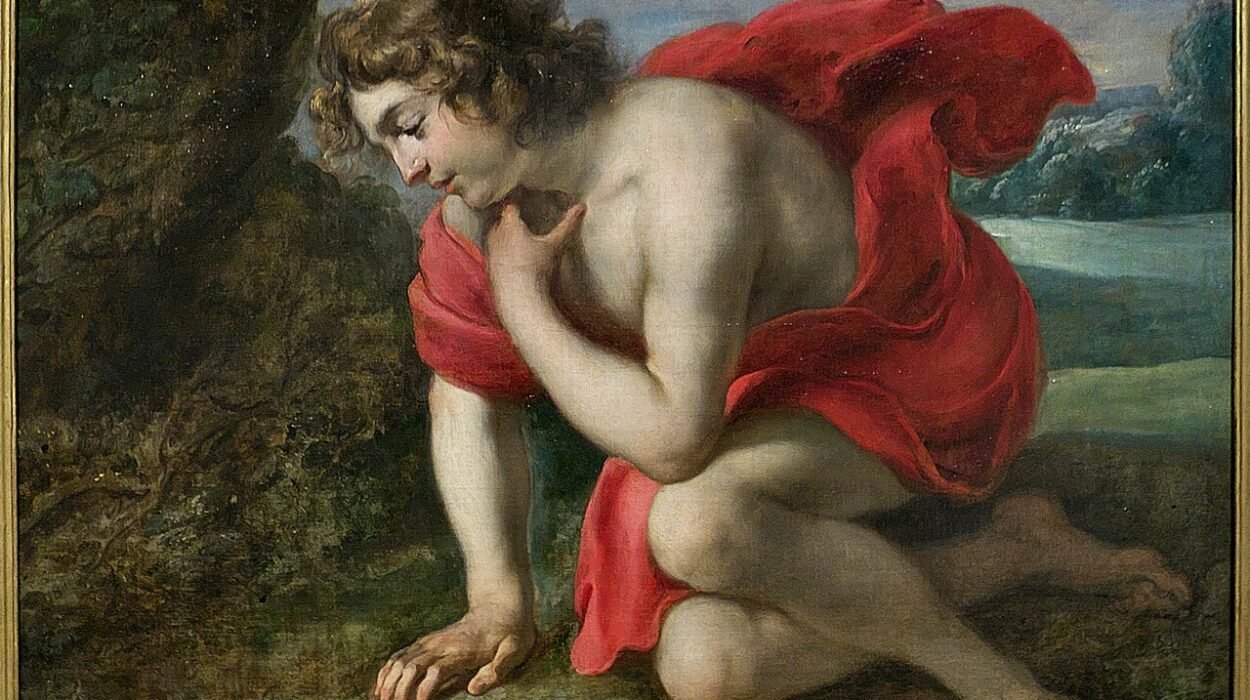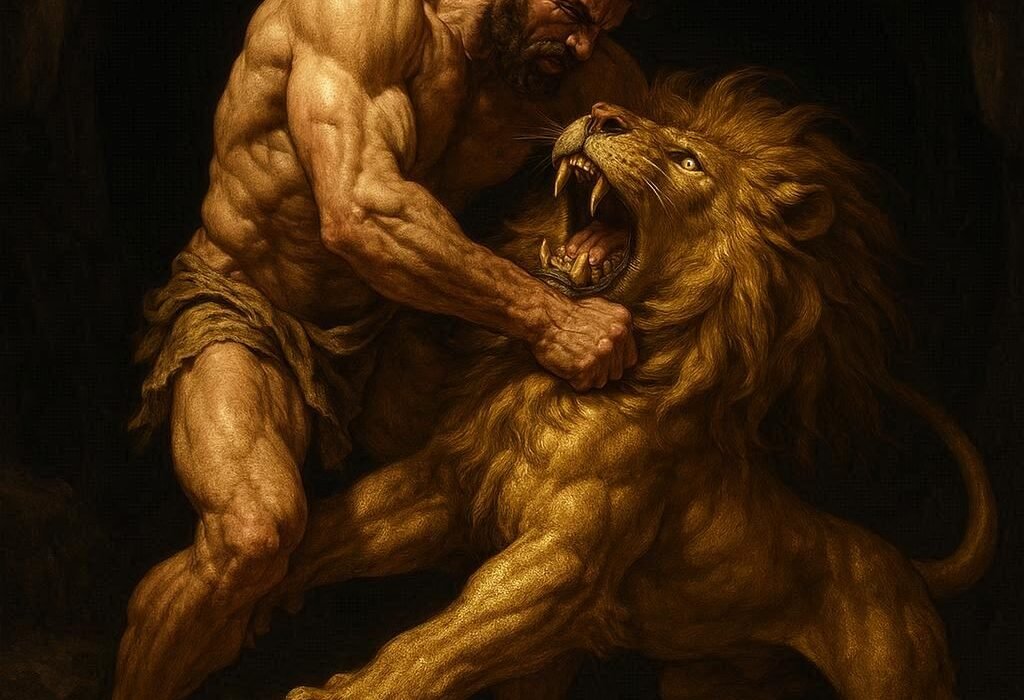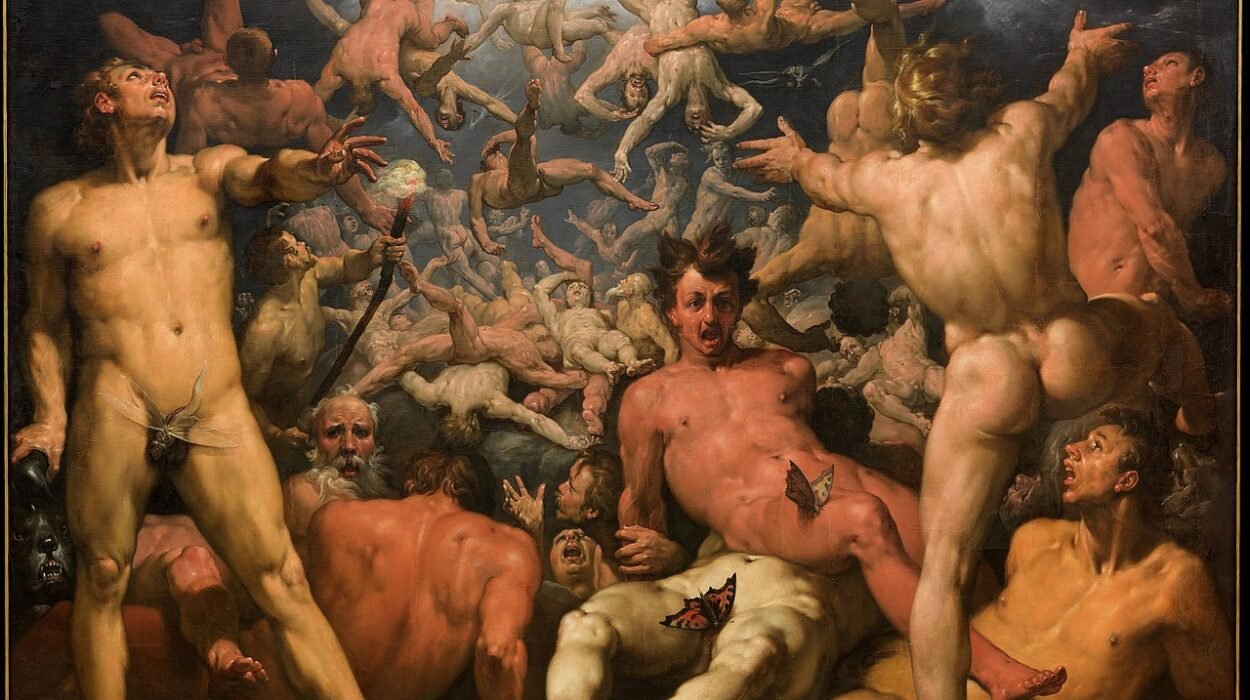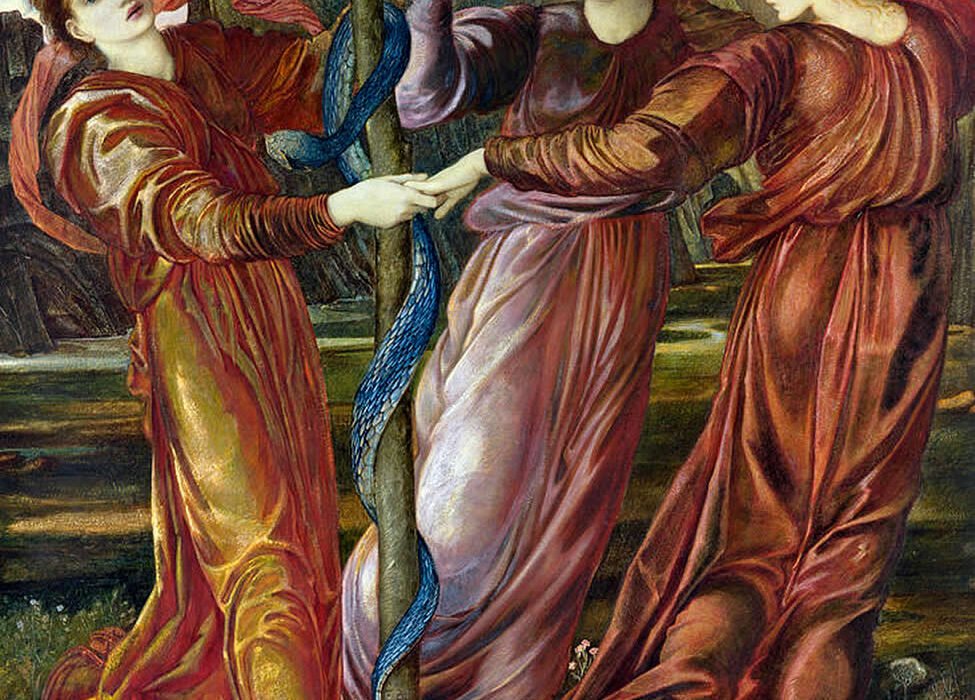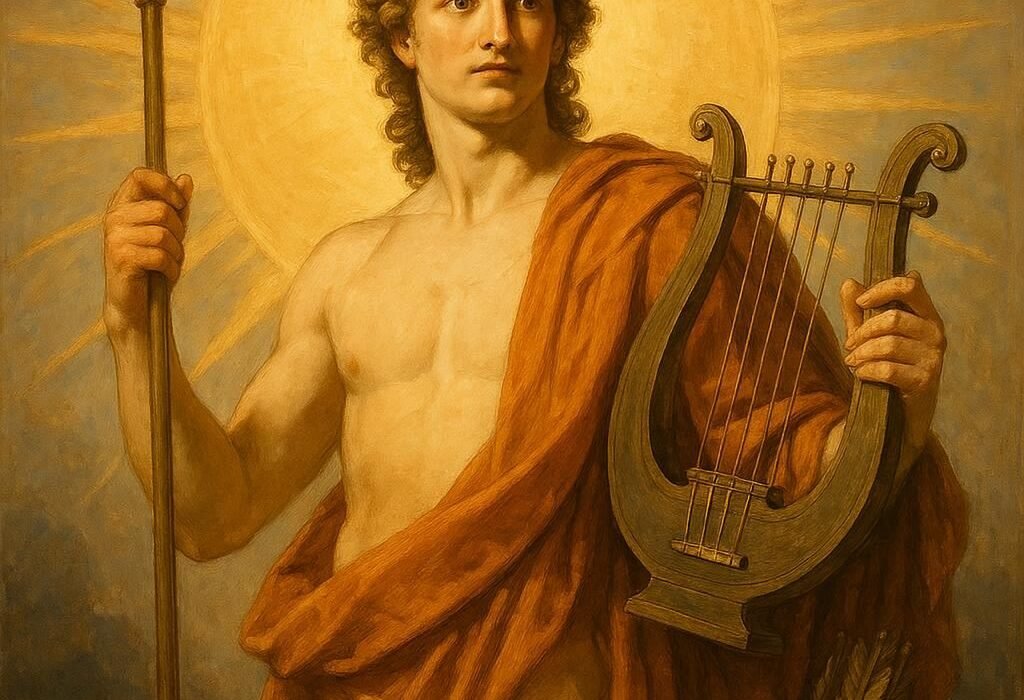Long before the modern world, when humanity still trembled in caves, staring out into the cold void of night, there was no fire. Darkness swallowed the earth after the sun set, and the only warmth came from the body’s fragile heat or the occasional lightning bolt that burned the forest floor. In Greek mythology, it was not chance that gave humanity the spark of fire, but a Titan—a figure half-god, half-rebel—named Prometheus.
Prometheus is not just a character in ancient stories. He is a symbol—of rebellion, sacrifice, defiance, and the restless human spirit that refuses to be bound. His myth explains not only how fire came to mankind but also why knowledge, freedom, and progress are never freely given—they are stolen, fought for, and paid for with suffering.
In this tale of defiance against the king of the gods, we find echoes of our own struggles: humanity reaching beyond limits, daring to seize what the universe withholds, and paying dearly for the gift of progress. The story of Prometheus is not only myth—it is a mirror of human ambition and the eternal quest for enlightenment.
The Titans and the Age Before Gods
To understand Prometheus, one must first return to the earliest days of Greek myth—the time before the Olympian gods ruled from Mount Olympus. The cosmos was shaped in cycles, each generation overthrowing the last.
The primordial beings—Chaos, Gaia (Earth), and Uranus (Sky)—gave birth to titans, giants of unimaginable power. Among them was Iapetus, whose sons would shape the destiny of both gods and mortals: Atlas, doomed to hold up the sky; Epimetheus, known for hindsight and folly; Menoetius, consumed by violence; and Prometheus, the one who would become humanity’s greatest champion.
When Zeus led the Olympians against the Titans in the great war known as the Titanomachy, Prometheus chose a dangerous path. Unlike many of his kin, he sided with Zeus. His cunning and foresight helped the Olympians overthrow the Titans, establishing Zeus as king of the cosmos. For this, Prometheus earned a privileged position among the new gods.
Yet, the same sharp mind that aided Zeus would one day turn against him. For while Zeus sought to rule with power and fear, Prometheus’s heart was drawn to humanity—the fragile, fumbling mortals who struggled in the shadows.
The Champion of Humanity
Prometheus’s name means “forethought.” Unlike his brother Epimetheus, who acted rashly and regretted later, Prometheus planned ahead, anticipating outcomes before they unfolded. This gift of foresight made him not only clever but dangerous in the eyes of the gods.
While Zeus looked upon humanity as weak, disposable, and beneath divine concern, Prometheus saw potential. He saw creatures who, though vulnerable, could one day rival the gods in skill and wisdom—if only they had the tools to survive.
According to Hesiod’s Theogony and Works and Days, Prometheus first intervened in humanity’s fate during a feast at Mecone, where gods and mortals sought to settle how offerings would be divided. To favor humanity, Prometheus devised a trick: he cut up an ox, wrapping the meat and organs in the animal’s unappealing stomach while covering the bare bones in glistening fat. He presented both to Zeus, asking him to choose which portion the gods would claim.
Deceived by appearances, Zeus chose the bones wrapped in fat, leaving the nourishing meat for humans. From that day onward, sacrifices to the gods consisted of bones and smoke, while mortals kept the sustenance for themselves.
Enraged at this insult, Zeus punished humanity by withholding fire. Without fire, humans remained cold, helpless, and forever dependent on the gods. But Prometheus would not let them wither in the dark.
The Theft of Fire
In the most daring act of defiance in Greek mythology, Prometheus crept into the heavens to steal what Zeus had forbidden. Accounts differ on the details: in some versions, he lit a torch from the fiery chariot of the sun god Helios; in others, he plucked a flame from Hephaestus’s forge. What is constant in every telling is his cunning and his courage.
To carry the flame to earth, Prometheus concealed it in a hollow stalk of fennel—a simple plant, humble and common, yet the perfect vessel for such a dangerous treasure. With that flickering spark, humanity was forever changed.
Fire was more than warmth against the cold. It was light against darkness, protection against beasts, and, most of all, a tool. Fire allowed humans to cook food, harden metals, shape weapons, and build civilizations. In mythic language, Prometheus gave not only fire but also knowledge, technology, and the possibility of progress.
To Zeus, this theft was unforgivable. Fire meant independence. Fire meant humanity could rival the gods themselves. Prometheus had not only broken Zeus’s law—he had tipped the balance of cosmic power.
Zeus’s Wrath and the Birth of Pandora
The king of the gods did not strike Prometheus immediately. Instead, Zeus crafted a subtler revenge. If Prometheus wished to elevate mankind, then mankind would also taste suffering.
Thus was born Pandora, the first woman, fashioned by the gods themselves. Each Olympian granted her gifts—beauty from Aphrodite, charm from Hermes, skill from Athena. But her most dangerous gift was a jar (later mistranslated as a box), sealed but heavy with hidden evils.
When Pandora opened it—whether out of curiosity or fate—sorrows, diseases, hardships, and death spilled into the world. Only one thing remained inside: hope.
With this myth, the Greeks explained why human life, though blessed with fire and progress, was also filled with suffering. Prometheus had given humanity power, but Zeus ensured that power would come at a cost.
The Eternal Punishment
Zeus’s fury did not end with Pandora. For the Titan himself, a punishment of unimaginable cruelty was devised.
Prometheus was chained to a remote cliff in the Caucasus Mountains, bound by unbreakable chains forged by Hephaestus. There, each day, an eagle—the sacred bird of Zeus—descended to tear open his flesh and feast on his liver. Each night, his body healed, only for the torment to begin again at dawn.
This punishment was eternal. Fire had been stolen once, but the suffering of its giver was meant to last forever.
Yet even in torment, Prometheus defied Zeus. In some versions of the myth, he possessed knowledge that could one day overthrow the king of the gods—a prophecy that a son of Zeus might be greater than his father. By withholding this secret, Prometheus retained a sliver of power against the ruler of Olympus.
For generations, poets and philosophers saw in Prometheus a symbol of unyielding resistance, of endurance in the face of tyranny. His suffering was not mere punishment—it was sacrifice.
The Hero’s Liberation
Though Zeus intended the punishment to last eternally, Greek myths rarely remain static. Eventually, Prometheus found release through another hero: Heracles (Hercules).
During his labors, Heracles traveled through the Caucasus and, seeing the bound Titan, took pity. With his mighty bow, he shot the eagle, freeing Prometheus from his torment. Zeus, perhaps weary of the endless struggle, or perhaps recognizing Prometheus’s value, allowed the liberation. Yet some versions hold that Prometheus was still required to wear a fragment of his chains forever—a reminder of his defiance.
In this liberation, myth wove together two different heroes: the Titan who gave humanity fire and the mortal-born demigod who exemplified strength. Both stood, in different ways, against the might of Zeus, embodying the spirit of resistance to divine authority.
Prometheus in Ancient Thought
To the Greeks, Prometheus was more than a myth. He embodied the tension between the divine and human, between authority and freedom, between ignorance and knowledge.
Philosophers like Aeschylus depicted him as a tragic hero. In his play Prometheus Bound, the Titan’s suffering is not mere punishment—it is portrayed as noble endurance for the sake of humanity. His defiance becomes a moral statement: that compassion and foresight are greater than tyranny and fear.
Plato, however, offered another perspective. In his dialogue Protagoras, he described Prometheus as a bringer not only of fire but of techne—the arts, skills, and technologies that separate humans from beasts. In this telling, Prometheus is the source of civilization itself.
Thus, in both tragedy and philosophy, Prometheus became a figure who bridged myth and meaning—a godlike being who stood closer to humanity than to Olympus.
The Symbolism of Fire
The central act of the Prometheus myth—the theft of fire—is not simply about warmth or survival. Fire is a universal symbol, one that carries layers of meaning across cultures and ages.
In mythology, fire often represents knowledge, enlightenment, and divine power. To give fire to humanity is to awaken them from ignorance, to give them a tool that transforms their place in the world. It is no coincidence that fire is also associated with danger, destruction, and hubris. With fire, humanity could rise, but also fall.
In this sense, the myth of Prometheus is both a story of empowerment and a warning. Knowledge is power, but power always carries consequences. The gods’ fear of humanity with fire mirrors our own anxieties about scientific progress today—nuclear power, artificial intelligence, genetic engineering. Prometheus is reborn in every new technology that gives humanity power once reserved for gods.
Prometheus in Literature and Art
The myth of Prometheus has never faded. From ancient tragedy to modern science fiction, he continues to inspire.
In the Romantic era, writers like Lord Byron and Percy Bysshe Shelley transformed Prometheus into a symbol of artistic and political rebellion. Shelley’s poem Prometheus Unbound depicts him not as a victim but as a triumphant figure, a spirit of human freedom who breaks free from tyranny.
Mary Shelley, Percy’s wife, invoked Prometheus in her novel Frankenstein; or, The Modern Prometheus. In Victor Frankenstein, she saw a modern echo of the Titan—a man who dared to seize the power of life itself, only to suffer for overstepping natural bounds.
Painters, sculptors, and composers across centuries have depicted Prometheus bound, his body writhing beneath the eagle, his defiance etched in every line. He remains one of the most enduring figures in Western art—a reminder that suffering for humanity’s sake is among the noblest forms of sacrifice.
Prometheus as a Scientific and Cultural Archetype
Beyond art and literature, Prometheus stands as a cultural archetype for the quest for knowledge. In science, his myth resonates whenever human curiosity pushes beyond the limits of the known world.
The first scientists to split the atom were compared to Prometheus, wielding a fire that could both create and destroy. Space exploration has been described as Promethean, a theft of the stars themselves. Even in medicine and biotechnology, the Titan’s spirit lingers, for to alter life itself is to claim a divine fire.
Yet, with every Promethean advance comes a Pandora’s box—a set of unforeseen consequences that follow progress. Nuclear energy brings both electricity and weapons. Genetic modification offers cures and risks. Artificial intelligence promises power and peril.
Thus, the myth of Prometheus remains not only a story of ancient Greece but a timeless allegory for the human condition.
The Eternal Relevance of Prometheus
Why does the story of Prometheus endure when so many other myths fade into obscurity? The answer lies in its resonance with our deepest struggles.
Prometheus is the eternal rebel, the figure who refuses to bow before unjust power. He is the one who sacrifices himself for the progress of others. He is the embodiment of the tension between safety and progress, obedience and defiance, ignorance and knowledge.
In every age, humanity faces its own Promethean choices. Do we dare to seize power we are told is forbidden? Do we embrace the risks that come with knowledge? Do we suffer for the sake of others, knowing the reward is not ours to keep?
These are not just questions of myth but of morality, science, and society.
The Flame That Burns Within Us
In the end, Prometheus gave humanity more than fire. He gave us a story—a story about courage, rebellion, and sacrifice. He showed that progress comes not from obedience but from defiance, not from submission but from daring to seize what lies beyond reach.
Every time we light a fire, whether in a hearth or in the circuits of our machines, we reenact the gift of Prometheus. Every time we push beyond the known, we walk in his footsteps. And every time we weigh the cost of progress, we hear the chains of the Titan echo across the ages.
Prometheus may have been punished, but his gift lives on. Fire still burns, not only in wood and coal, but in our relentless curiosity, in our hunger for knowledge, and in the flame of the human spirit that refuses to be extinguished.
That is why Prometheus is eternal. He is not merely a Titan of Greek mythology—he is the symbol of humanity itself.


